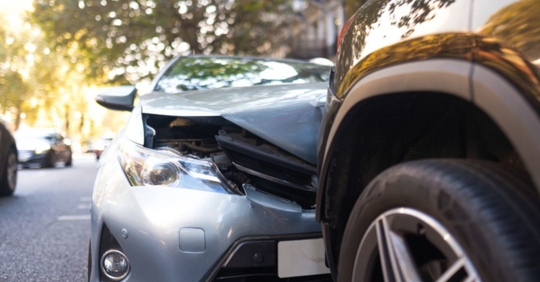Accidents are chaotic and stressful, often leaving us unsure of what to do next. Between processing what just happened and dealing with injuries, it’s easy to forget an important step—documenting the details. But here’s the thing—what you document (or fail to document) after an accident can be critical if you decide to file a claim or lawsuit. The better your records, the stronger your case.
Unfortunately, some important details are frequently overlooked. Don’t worry, though. We’re here to walk you through the top three things most people forget to document—and how you can ensure you don’t make the same mistake.
1. The Scene as It Was
Right after an accident, the scene begins to change. Cars get moved, witnesses leave, and hazards (like a puddle on the floor) might get cleaned up. That’s why documenting the scene as it was at the time of the incident is so important. But it’s also something most people forget to do in the rush to exchange information or get medical help.
What You Should Do:
1. Take Photos and Videos
Use your phone to snap photos and record videos of everything—the location, the involved vehicles or objects, visible injuries, any hazards that contributed to the accident, and even the weather or lighting conditions. More is always better.
Example: If you slipped on a wet floor in a supermarket, capture pictures of the spill area, the absence of a caution sign, and your shoes to show they weren’t excessively slippery.
2. Sketch the Scene
If you can’t photograph everything, consider drawing a quick sketch of the scene, noting the positions of vehicles, people, or objects.
3. Note the Date and Time
Small details like the time of day can factor into things like lighting conditions or traffic patterns. Make sure to log this information clearly.
2. Witness Information
After an accident, witnesses are a goldmine of information. Their testimony can provide a neutral perspective that supports your version of events. But in the panic, many people forget to get their contact details, leaving them with no way to follow up later.
What You Should Do:
1. Collect Names and Contact Info
Politely ask bystanders for their names, phone numbers, and email addresses. If they agree, this information could be invaluable later.
Example: If you were in a car accident, someone who saw the other driver run a red light can back up your claim.
2. Ask for a Brief Statement
If the witness is willing, ask them to give a written or recorded statement about what they saw. Voice memos or written notes on your phone can work well for this.
3. Follow Up Quickly
Witnesses may forget what they saw as time passes, so it’s helpful to contact them within a few days to see if any additional details come to mind.
3. Your Own Pain and Recovery
Most people focus on documenting the accident's immediate aftermath, but they often overlook tracking their injuries and how they progress over time. This ongoing record can be critical for demonstrating the full impact of your accident, especially if your case takes months or years to resolve.
What You Should Do:
1. Keep a Pain Journal
Write daily entries about your physical and emotional state. Note where you feel pain, how it affects your ability to work or enjoy activities, and any treatments you’re undergoing.
Example: After a car crash, you might document how neck pain has kept you from picking up your kids or sleeping through the night.
2. Save Medical Records
Each doctor’s appointment, diagnosis, and prescription can help show the extent of your injuries. Always request copies of your medical records, including tests, bills, and physician notes.
3. Take Photos of Your Injuries
It can be hard to convey the severity of an injury through words alone. Take photos of visible injuries from different stages of recovery to create a timeline of your healing process.
Why Documentation Is Key
Accidents come with a lot of “he said, she said.” Solid documentation can cut through the noise and provide concrete proof of what really happened. It helps establish who’s at fault, demonstrates the accident's impact on your life, and strengthens your case if you decide to pursue compensation.
Car Accident Attorneys
Accidents are unpredictable, but being prepared with comprehensive documentation can make a significant difference in the aftermath. By understanding the importance of detailed records, avoiding common mistakes, and utilizing available resources, you can protect your rights and secure the compensation you deserve. If you find yourself in need of legal assistance, consider reaching out to Palace Law in University Place, WA. Our experienced team is dedicated to helping you navigate the complexities of personal injury claims and ensuring that your documentation supports your case effectively. Contact us today at (253) 544-5935 to learn more about how we can assist you in your journey towards recovery and justice.






